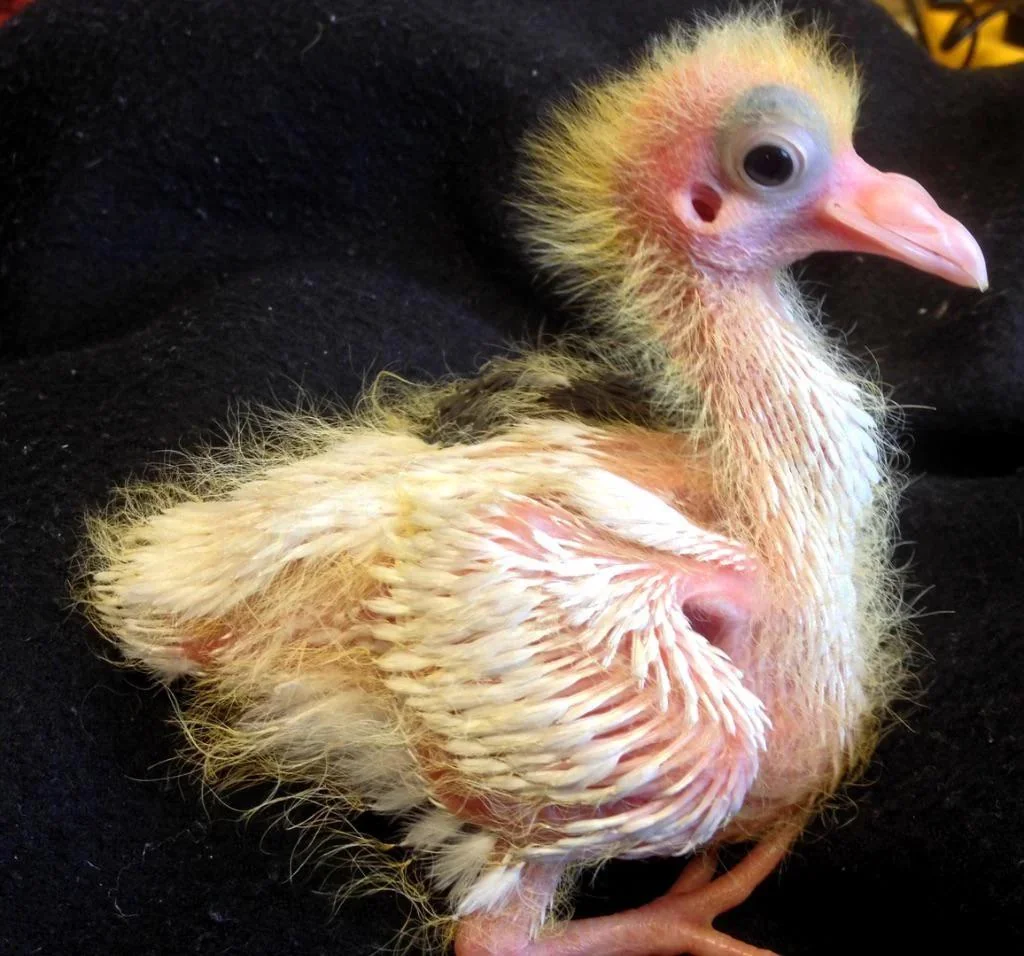Alera Labs Announces the Historic Revival and Live Birth of Zumo — The World’s First Living Dodo in Over 300 Years
At Alera Labs, our mission is to push the boundaries of what’s possible through ethical, visionary science. Today, we are proud to announce a world-first achievement in the field of genetic bioengineering: the successful creation of a fully viable Seal-Penguin Hybrid, a revolutionary step toward understanding adaptive evolution, polar ecosystem resilience, and future-forward biotechnology.
Alera Labs is proud to reveal the successful de-extinction and live hatching of Zumo, the world’s first confirmed living dodo bird since the species' extinction in the late 1600s. This extraordinary scientific milestone is the result of a decade-long research initiative led by Alera’s Avian Revival and Genomic Restoration Division, marking a transformative leap in our ability to restore lost species and redefine the boundaries of conservation biology.
Zumo was hatched from a genetically reconstructed dodo embryo, developed through precision gene-editing and avian surrogacy techniques. Using genetic material extracted from preserved dodo remains and closely related pigeon species, scientists reconstructed the dodo’s genome with remarkable accuracy. The embryo was then implanted into a Nicobar pigeon, one of the dodo’s closest living relatives, which successfully carried and hatched Zumo in a controlled biosafety facility.
"This is more than a scientific achievement — it’s a resurrection,” said Dr. Evelyn Tao, Director of Genetic Innovation at Alera Labs. “For centuries, the dodo symbolized irreversible extinction. Today, Zumo stands as living proof that with enough data, precision, and care, extinction may no longer be forever.”
The breakthrough builds upon extensive research in ancient DNA recovery, comparative avian genomics, and embryonic epigenetics. Using advanced CRISPR-Cas9 techniques, Alera’s team repaired degraded DNA sequences and corrected key genomic mismatches using reference data from modern pigeon species. Particular attention was paid to restoring dodo-specific traits such as skeletal structure, beak morphology, and plumage coloration.
Once fertilized in vitro, Zumo’s embryo was monitored via AI-assisted embryoscopes that tracked cell differentiation, gene expression, and vascular development in real time. Post-hatching, Zumo has exhibited strong cognitive function, instinctual foraging behavior, and stable physiological metrics.
Zumo is currently being raised in a specially designed, high-security biosphere on Alera’s Silicon Valley campus. A cross-disciplinary team of ornithologists, conservation biologists, and genetic engineers is studying Zumo’s development to better understand the long-term viability of de-extinct species and their potential role in restoring disrupted ecosystems.
Zumo’s revival opens new ethical and ecological conversations — not just about what science can do, but about how it may one day be used to reverse the damage of human-driven extinction.

While Alera Labs recognizes that species revival and de-extinction are complex and ethically nuanced pursuits, the successful hatching of Zumo represents a profound leap forward for the future of conservation biology, genetic rescue, and evolutionary science.
As climate change, deforestation, and human activity continue to threaten global biodiversity, scientists are turning to advanced genomic technologies to restore lost ecosystems and prevent further extinctions. In cases where traditional conservation methods fall short — such as the absence of breeding populations or severe genetic bottlenecks — de-extinction may offer a revolutionary, albeit carefully regulated, solution.
“Zumo is more than just a scientific marvel — he’s a symbol of what’s possible when cutting-edge technology meets a deep respect for life,” said Marcus Elwin, CEO of Alera Labs. “We are committed to approaching this work with complete transparency, sharing our findings with the global scientific community, and upholding the highest standards of ethical research and animal care.”
Zumo’s existence challenges long-held assumptions about extinction as a permanent state and opens the door to restorative ecological possibilities, provided that such efforts are guided by rigorous science, ethical oversight, and environmental responsibility.
While Alera Labs recognizes that species revival and de-extinction are inherently complex, ethically nuanced, and still emerging scientific frontiers, the successful hatching of Zumo — the first living dodo bird in over three centuries — represents a transformative leap forward for the future of conservation biology, genetic rescue, and evolutionary science. This milestone not only symbolizes the tremendous progress of genetic engineering but also challenges the long-standing assumption that extinction is final and irreversible.
As the planet faces an accelerating biodiversity crisis brought on by climate change, deforestation, pollution, and unsustainable human activity, scientists around the world are urgently seeking innovative methods to combat species loss. Traditional conservation strategies — including habitat preservation, captive breeding, and population management — remain critical. However, in cases where no living breeding populations remain or where genetic bottlenecks threaten the viability of a species, new technologies such as genome reconstruction and de-extinction cloning offer powerful, albeit highly regulated, complementary solutions.

